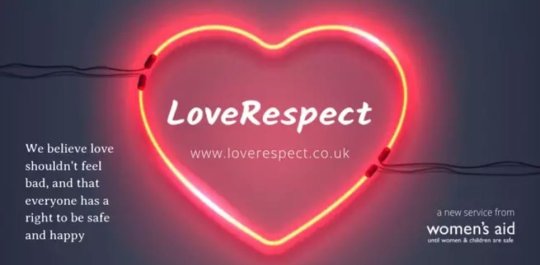News, Women Abuse
Nearly two-thirds of teenage girls have been in abusive relationships, study finds
James Hockaday

A study shows 64 per cent of teenage girls have experienced relationship abuse, but many were not aware of it (Picture: Getty Images/Love Respect/Women’s Aid) Women’s Aid has launched a website to help teenage girls after a study revealed nearly two-thirds of them had been in abusive relationships. The charity’s new #LoveRespect project seeks to support those at risk of relationship abuse and challenge myths surrounding the nature of coercive control.
The website features a relationship health check, survivor stories, practical advice and an email support service. It comes after research by Women’s Aid and Cosmopolitan found a third of teenage girls knew they had been in an abusive relationship.
But when the remaining two-thirds were asked more detailed questions, it became clear 64% had experienced abusive behaviour but did not recognise it as such. Among the website’s survivor stories is that of Women’s Aid Ambassador, personal trainer and author Alice Liveing, who describes how police arrived at her door when she was just 16. She said she felt ‘so isolated and alone’ and didn’t think abuse was something that happened to young people. She added: ‘I didn’t think that abuse happened to young people, and to be honest I had no idea that what I was experiencing was even abuse for a long time either.’
Four other victims bravely share their stories about how they were controlled, dominated and bullied in a bid to help people spot the warning signs.

The Women’s Aid project gives teenage girls the warning signs of relationship abuse (Picture: Love Respect/Women’s Aid) Acting Co-Chief Executive of Women’s Aid Adina Claire said: ‘Not only is public understanding of coercive control still lacking, but our research also shows that phrases like “domestic abuse” don’t resonate with teenage girls.
‘They see it as something that happens to women with husbands and children, and involves physical abuse. ‘For too long, society has reinforced the message that men should have power in relationships, which has made the sorts of abusive behaviours young women and girls are facing appear normal. ‘It seems accepted as standard for young men to manipulate, control and ultimately abuse them.
‘Gaslighting, excessive jealously, having their appearance scrutinised, sexual pressure – these are the things that teenage girls are putting up with. ‘We’ve launched this website to help teenage girls understand the nature of controlling and coercive behaviour. ‘We want to let them know that support is out there, and tell the stories of young women who have been through the same things and survived.’ She said the charity is also working on an online chat service to provide further support.
Bestselling young adult author and feminist activist Holly Bourne is the charity’s #LoveRespect Ambassador. She said: ‘We are never more vulnerable than when we are in love, and this is particularly true when we fall in love for the first time with no other relationships to compare it to. ‘That’s why it’s so important Women’s Aid exists to educate young people on what healthy relationships look like and feel like, especially when abusive behaviour is so romanticised by the media. ‘Having a bad boyfriend shouldn’t be an acceptable rite of teen passage. The damage they cause is often long-lasting.’
